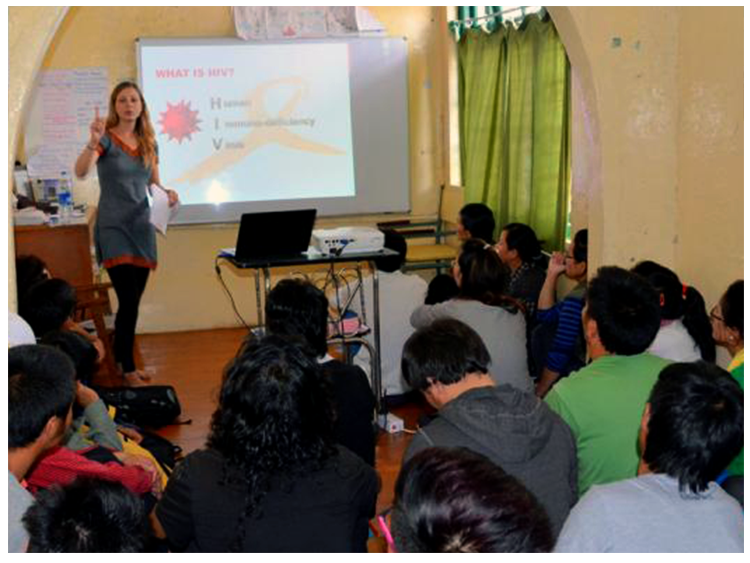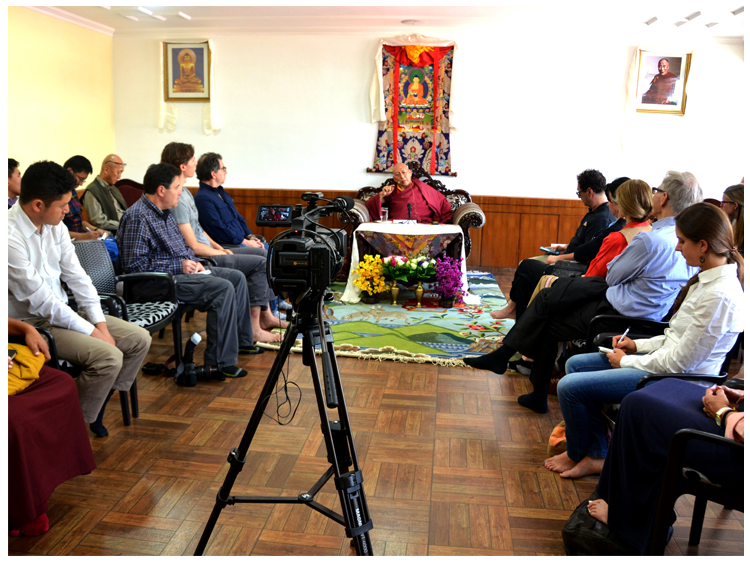 Tibetans in exile are categorised as a high risk group for HIV infection due to high mobility, lack of awareness of the disease. According to the Central Tibetan Administration’s (CTA) Demographic survey of Tibetans in Exile 2009, almost 15% of the total working population engages in the sweater selling activities (seasonal street vendors)—most of whom travel to urban areas alone and are separated from their families for several months out of the year.
Tibetans in exile are categorised as a high risk group for HIV infection due to high mobility, lack of awareness of the disease. According to the Central Tibetan Administration’s (CTA) Demographic survey of Tibetans in Exile 2009, almost 15% of the total working population engages in the sweater selling activities (seasonal street vendors)—most of whom travel to urban areas alone and are separated from their families for several months out of the year.
Although no formal study has been conducted to determine the risk factors amongst Tibetan male refugees, it is highly speculated that they are at risk of exposure to HIV due to engaging in unprotected sex with commercial sex workers. HIV prevalence amongst commercial sex workers in India is significantly high according to the World Health Organization. Data on the HIV/AIDS situation in Tibetan communities in exile is limited, however according to the CTA Department of Health data of 2010, 130 cases have been reported in individuals in exile. In Tibet, as of 2009, 103 cases were suspected.
 Lha Charitable Trust intends to tackle the problem and raise awareness in the community to help reduce the incidence of HIV/AIDS in Tibetan communities living in exile. This will be achieved through a multi-levelled education and awareness programme which we will begin in the local community of Dharamsala and extend across other Tibetan settlements throughout India. To maximise the project’s impact and efficiency, we are hoping to coordinate with the structures and organisations that are already in place such as schools, drug services and other community organisations such as monasteries and women’s associations.
Lha Charitable Trust intends to tackle the problem and raise awareness in the community to help reduce the incidence of HIV/AIDS in Tibetan communities living in exile. This will be achieved through a multi-levelled education and awareness programme which we will begin in the local community of Dharamsala and extend across other Tibetan settlements throughout India. To maximise the project’s impact and efficiency, we are hoping to coordinate with the structures and organisations that are already in place such as schools, drug services and other community organisations such as monasteries and women’s associations.
Alongside ensuring consistent provision of HIV/AIDS education, we want to create a peer-to-peer education programme to access those young people who are not in already contact with organisations such as schools and drug services. Peer education is based on the reality that many people make changes not only based on what they know, but on the opinions and actions of their close, trusted peers.
Read {hits}362{/hits} times
